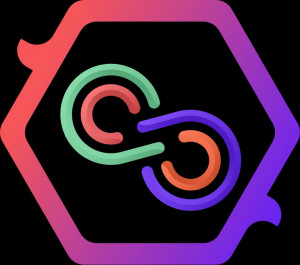Decentrawood Info
Deod is the native token of Decentrawood. Imagine a virtual world where you can live, work, shop, and connect with others — all from the comfort of your couch in the physical world.

TrustNet Score
The TrustNet Score evaluates crypto projects based on audit results, security, KYC verification, and social media presence. This score offers a quick, transparent view of a project's credibility, helping users make informed decisions in the Web3 space.
Real-Time Threat Detection
Real-time threat detection, powered by Cyvers.io,
is currently not
activated
for this project.
This advanced feature provides continuous monitoring and instant alerts to safeguard your assets from potential security threats. Real-time detection enhances your project's security by proactively identifying and mitigating risks.
For more information, click here.
Summary and Final Words
No crucial issues found
The contract does not contain issues of high or medium criticality. This means that no known vulnerabilities were found in the source code.
Contract owner cannot mint
It is not possible to mint new tokens.
Contract owner cannot blacklist addresses.
It is not possible to lock user funds by blacklisting addresses.
Contract owner cannot set high fees
The fees, if applicable, can be a maximum of 25% or lower. The contract can therefore not be locked. Please take a look in the comment section for more details.
Contract cannot be locked
Owner cannot lock any user funds.
Token cannot be burned
There is no burning within the contract without any allowances
Ownership is renounced
The contract does not include owner functions that allow post-deployment modifications.
Scope of Work
This audit encompasses the evaluation of the files listed below, each verified with a SHA-1 Hash. The team referenced above has provided the necessary files for assessment.
The auditing process consists of the following systematic steps:
- Specification Review: Analyze the provided specifications, source code, and instructions to fully understand the smart contract's size, scope, and functionality.
- Manual Code Examination: Conduct a thorough line-by-line review of the source code to identify potential vulnerabilities and areas for improvement.
- Specification Alignment: Ensure that the code accurately implements the provided specifications and intended functionalities.
- Test Coverage Assessment: Evaluate the extent and effectiveness of test cases in covering the codebase, identifying any gaps in testing.
- Symbolic Execution: Analyze the smart contract to determine how various inputs affect execution paths, identifying potential edge cases and vulnerabilities.
- Best Practices Evaluation: Assess the smart contracts against established industry and academic best practices to enhance efficiency, maintainability, and security.
- Actionable Recommendations: Provide detailed, specific, and actionable steps to secure and optimize the smart contracts.
A file with a different Hash has been intentionally or otherwise modified after the security review. A different Hash may indicate a changed condition or potential vulnerability that was not within the scope of this review.
Final Words
The following provides a concise summary of the audit report, accompanied by insightful comments from the auditor. This overview captures the key findings and observations, offering valuable context and clarity.
Authority Privileges
onlyAdmin, onlyDevelopmentTeam, onlyStrategicAllianceTeam, and onlyMarketingTeam wallet owners can allot tokens to certain addresses but the allotment must be less than the max allotment which is 10% of the Total supply
The ownable contract is not implemented in the Decentrawood contract, but the privileges mentioned above are still valid
Files and details
Functions
public
/
State variables
public
/
Total lines
of code
/
Capabilities
Hover on items
/
Findings and Audit result
low Issues | 3 findings
Pending
#1 low Issue
Local variables shadowing (shadowing-local)
Rename the local variables that shadow another component.
Pending
#2 low Issue
Floating Pragma
The current pragma Solidity directive is “^0.8.0". Contracts should be deployed with the same compiler version and flags that they have been tested thoroughly. Locking the pragma helps to ensure that contracts do not accidentally get deployed using other versions
Pending
#3 low Issue
Contract doesn’t import npm packages from source (like OpenZeppelin etc.)
We recommend importing all packages from npm directly without flattening the contract. Functions could be modified or can be susceptible to vulnerabilities
informational Issues | 2 findings
Pending
#1 informational Issue
Functions that are not used (dead-code)
Remove unused functions.
Pending
#2 informational Issue
Function initializing state variables (function-init-state)
Remove any initialization of state variables via non-constant state variables or function calls. If variables must be set upon contract deployment, locate initialization in the constructor instead.